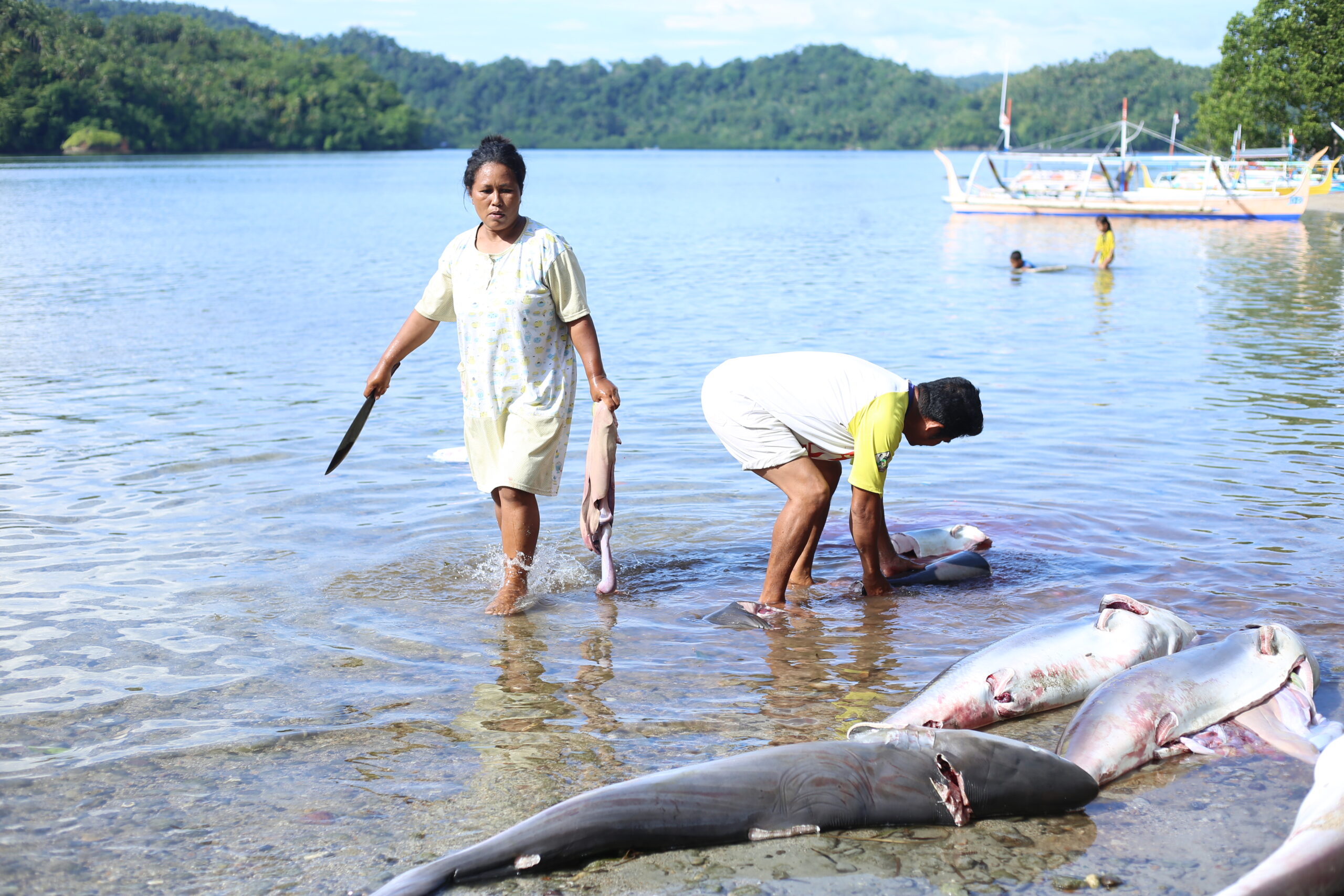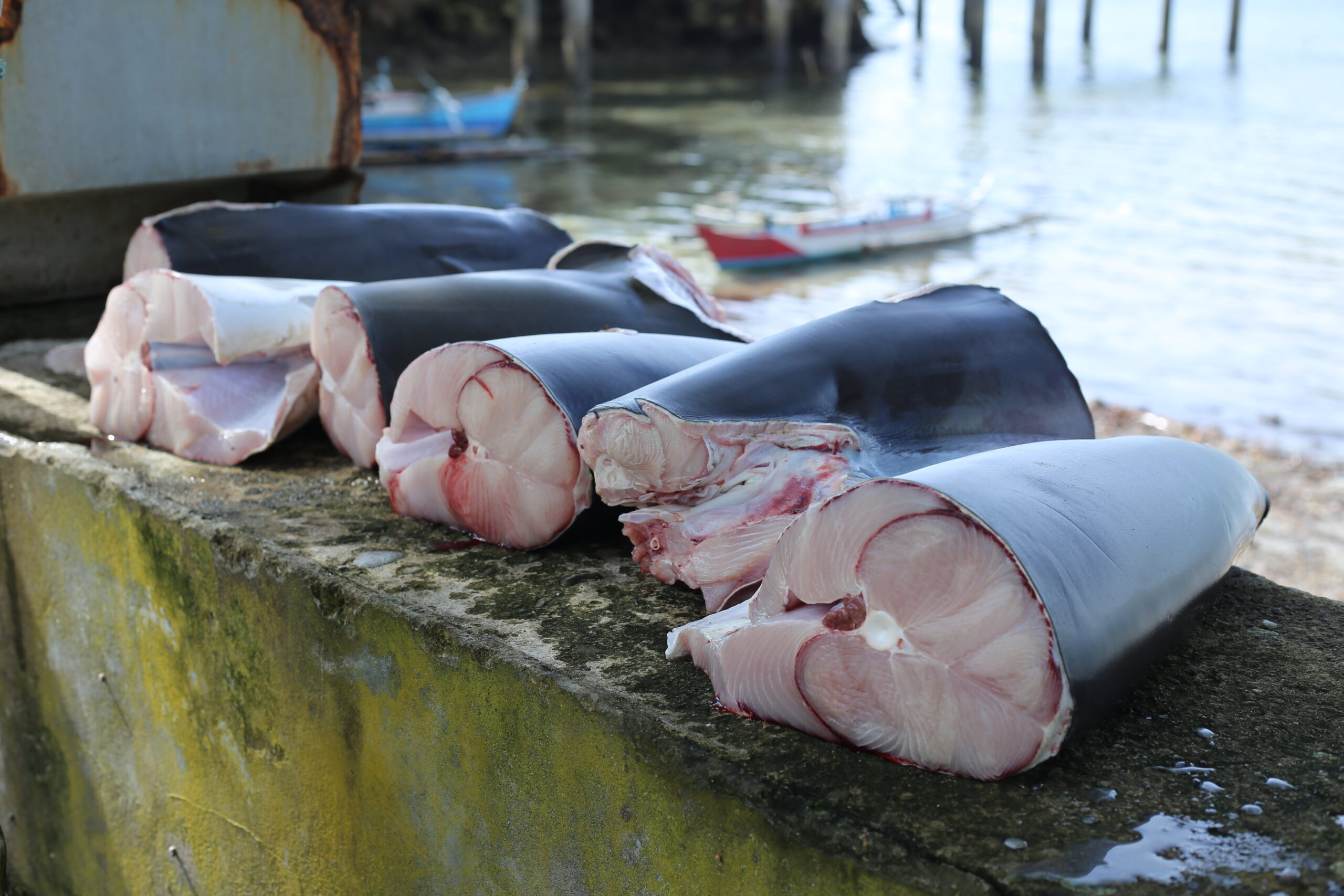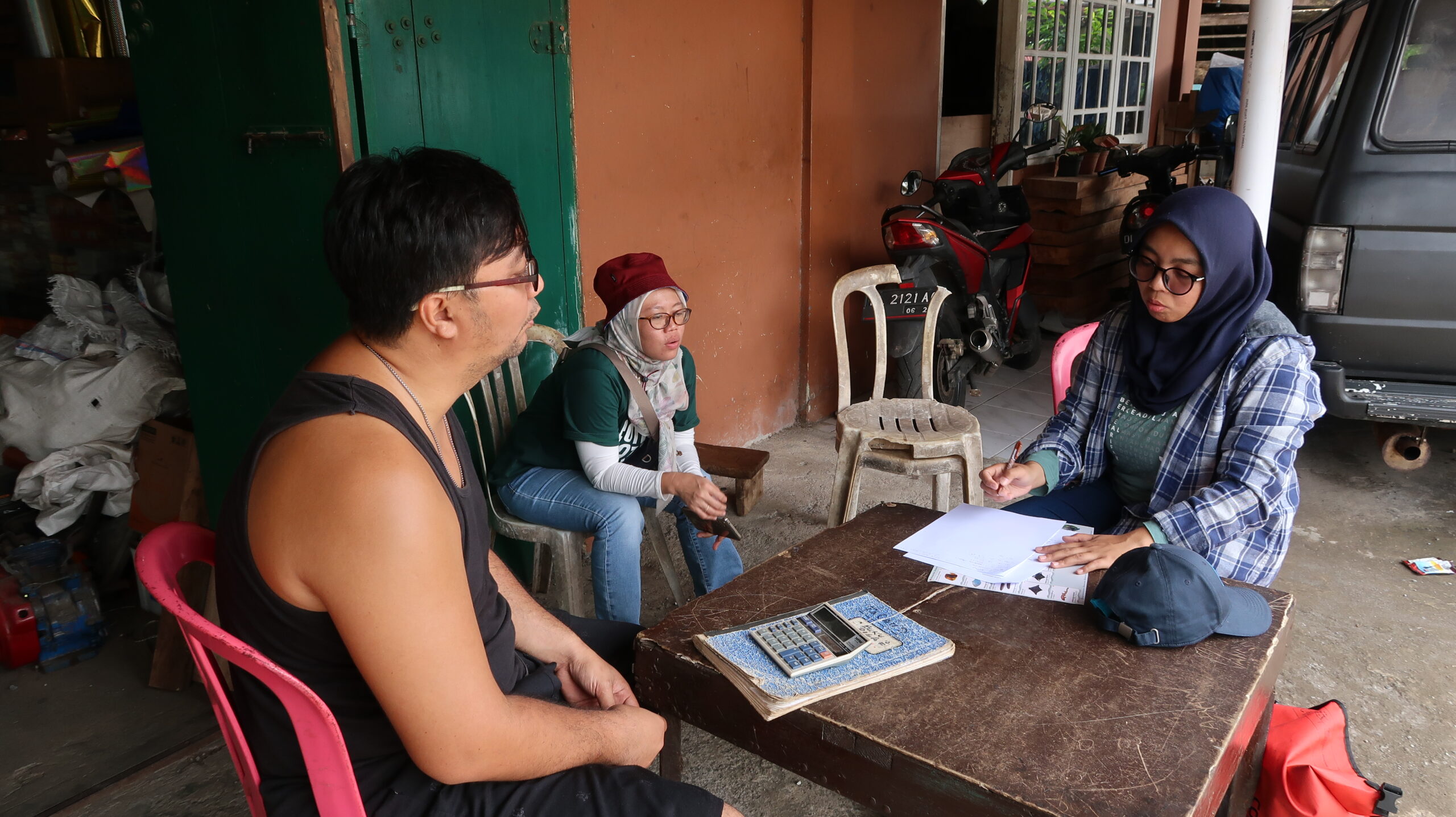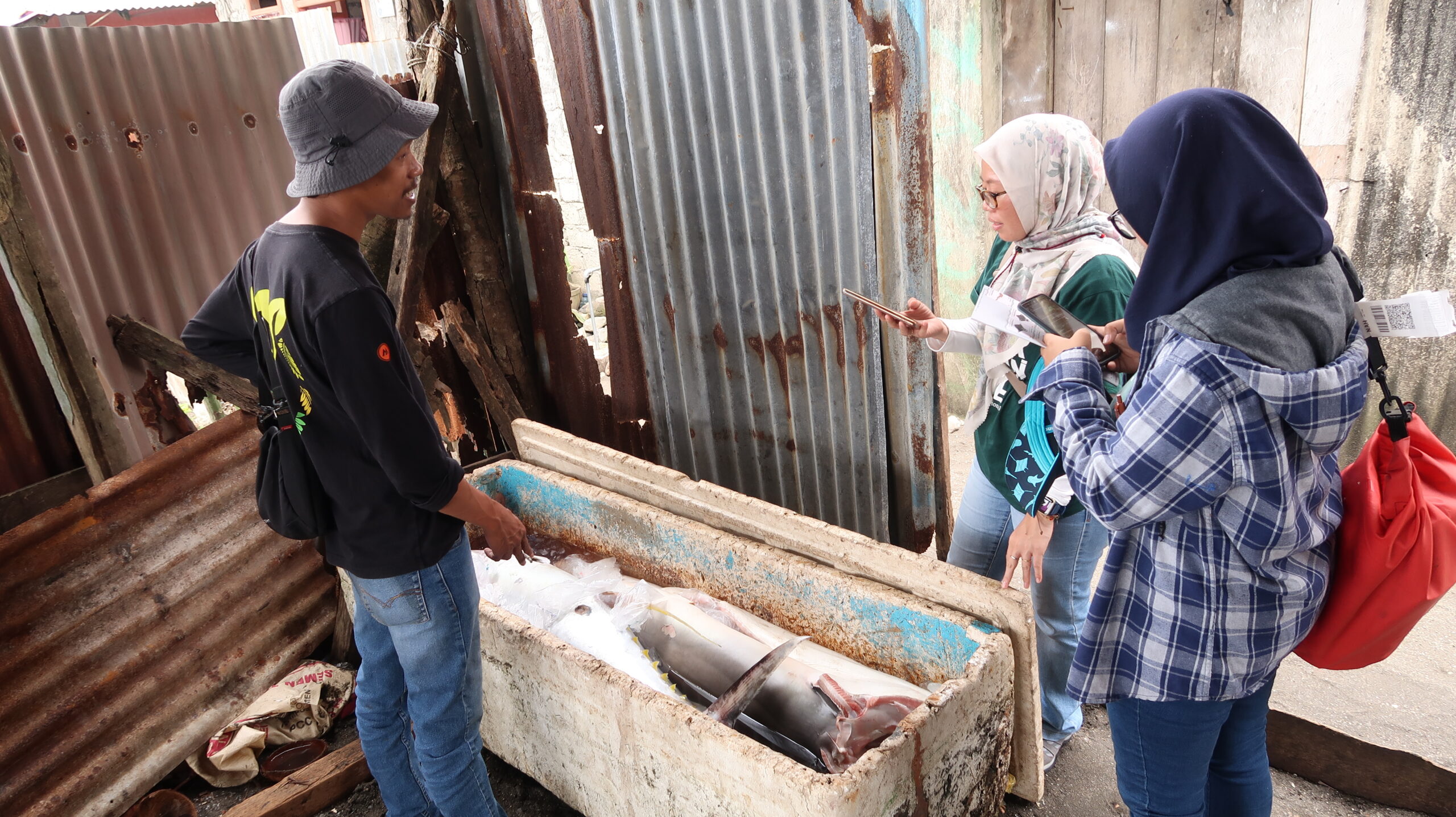Understanding the market chain for shark product in Sangihe Islands by conducting the traders survey
Understanding the market chain for shark products is important to better explain the small-scale shark fishery in Sangihe Islands. Thanks to Save our Seas Foundation, Conservation Strategy Fund Indonesia, and United in Diversity Indonesia who supported us in conducting a traders survey in June and August of 2023. In Sangihe Islands, we estimated that there are three fishing communities that target shark species for their livelihood, one of them being fishers in our pilot project in Batuwingkung Island.

A woman is helping her husband to prepare the shark meat before selling it to the community or bringing it to the local market. Photo by Jhonli Mamuka | © YAPEKA

Shark meat cut and ready to sell at the landing site in Batuwingkung Island. Photo by Jhonli Mamuka | © YAPEKA
At the landing site, fishers cut the shark fins from their bodies to sell the fins and meat separately. In Batuwingkung, most fishers sell the shark meat directly to the communities at the landing site or bring the meat to the local market. If the catch is too large (more than three individuals) they will usually sell to the shark meat trader. The traders accept the whole shark and pay the fishers 4000 to 6000 rupiah per kilogram of shark meat. Besides the meat, fishers dry the shark fins to sell to specific shark fin traders. Commonly fishers get 100.000 to 1.600.000 rupiah per kilogram from the dried fins, with larger fins fetching a higher price. Shark meat is not only sold to the nearest local market but distributed to Manado and sold to the traditional market or ends up in the upper chain in Surabaya. Local demand for shark fins is
low in Sangihe due to the expensive price they can fetch. The majority of shark fins, therefore, are traded to Manado and Surabaya. Trading of shark meat or fins outside Sangihe Islands is regulated by the Indonesian Government under the Ministry of Maritime Affairs and Fisheries (MMAF). The implementation becomes the responsibility of Coastal and Marine Resources Management Center (BPSPL). BPSPL has the authority to give permission and legalization for the traders. In Sangihe, there are only two traders who have the permit and legalization for shark trading. In the future,
we hope that this will extend to all catch and trade of the shark becoming transparent, legal, and trackable.

Our project leader, Citra Septiani, conducting an interview with fin traders. Photo by Jhonli Mamuka | © YAPEKA

Our project leader, Citra Septiani, conducting a survey with shark meat traders. Photo by Jhonli Mamuka | © YAPEKA
